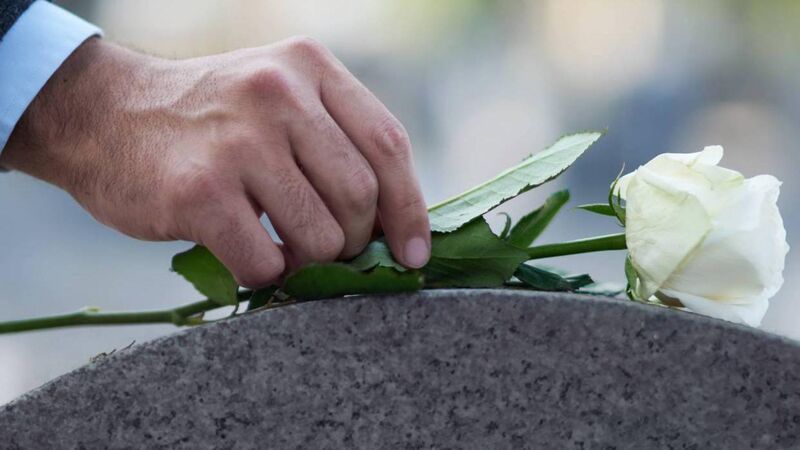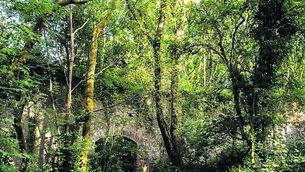Trevor Laffan: Cremations on rise, but are we burying a vital Irish tradition?

More and more people are choosing cremation instead of burial, according to Dublin Cemeteries Trust, which hosts funeral services at its five cemeteries across Dublin.
They say cremations now make up almost 70% of funerals, with fewer than one in three opting for burial, but recently reported a different trend in Cork which suggested that standard coffin burials continue to dominate the funeral landscape.
While 78% of funerals were coffin burials within the Cork city division in 2024, more and more people are looking into alternative options when it comes to planning that final farewell.
A spokesperson for Cork City Council told that the local authority undertook 1,300 interments last year across its 13 cemeteries, 1,014 of which were coffin burials, and the remainder, at 286, being ash burials.
I wonder, though, how accurate that picture is when you consider the number of urns that are not interred in an official plot.
I reckon many ashes are dispersed over a favourite location predetermined by the deceased, meaning the final resting place would remain unrecorded.
An undertaker told me years ago that he had a room full of urns he had collected from various crematoria that had never been claimed by relatives. Maybe that’s because cremation is still relatively new in Ireland, and many families are unsure, or can’t decide, what to do with them. Others chose to just keep the ashes at home.
Cremation seems cleaner, and a warm, dry crematorium provides more comfortable surroundings and a shelter from the elements, even if it is a bit clinical.
On the other hand, traditional burials are still popular in some countries, like Cyprus, where I spend some of my time.
Cypriots have resisted cremation up to now and I attended a funeral in the village of Liopetri recently and it was not an unpleasant experience.
Pablo, Pablos or Paul, depending on which friend you speak to, was a guy I wrote about a while back. As a boy, he witnessed the shooting of four young men in his village by the British army in the 1950s when Cyprus was under British rule.
He was 81 years old when he died but had been in good health until very recently, so it was a surprise when I heard he had passed away. Fortunately, I was here at the time, so I was able to attend the funeral, but it was an unusual experience in many ways.
The main religion in Cyprus is Greek Orthodox Christianity, with approximately 78% of the population identifying as Christians. When the coffin arrived in the church, it was placed on a trestle at the top of the church but there was no actual altar. There was a little window at the head of the coffin which allowed mourners to see the face of the deceased.
Two bearded priests dressed in black took their position at the head of the coffin and began chanting the prayers. This went on for about half an hour and seemed relatively informal.
Mourners left their seats and mingled with other mourners, offering their condolences and chatting away during the service, and nobody seemed to mind.
After the service, the deceased was taken by hearse to the village cemetery. It was about 30C with a clear blue sky and there wasn’t a puff of wind.
The coffin was placed on the ground next to the freshly dug grave. The lid was removed, and the face of the deceased was covered with a cloth. The shroud was then pulled up to cover the entire body.
A member of the family spread a couple of shovels of earth directly onto the body. Some holy oil was poured over that, and the coffin was lowered into the grave. The lid was replaced, and the grave was filled in.
Those present were invited to wash their hands over the grave with water poured from a large clay pot. The empty pot was then placed on top of the grave and smashed to pieces with a shovel.
One explanation I got for this was that it broke the connection between the deceased and all earthly goods.
That marked the end of the formal proceedings, and in another area of the graveyard some wine, olives, bread and Halloumi cheese was supplied to the mourners.
Forty days is considered to be the length of time the deceased person’s soul is still on earth.
While it was a sad occasion, it wasn’t depressing. The whole process was solemn and dignified, but informal at the same time. It was a relaxed atmosphere and maybe that was down to a mixture of the weather and the sense of tradition.
It would be a shame to lose that when cremation eventually arrives here.
Incidentally, I was told the reason for having the little window in the coffin and for removing the lid at the graveyard began in Greece.
It wasn’t unusual for Greeks to bury an empty coffin to cover the escape of a loved one from the island. Either to avoid Turkish conscription into the army that required them to fight against people of their own faith, or, more often, to escape the penalties of their crimes.







 App?
App?




